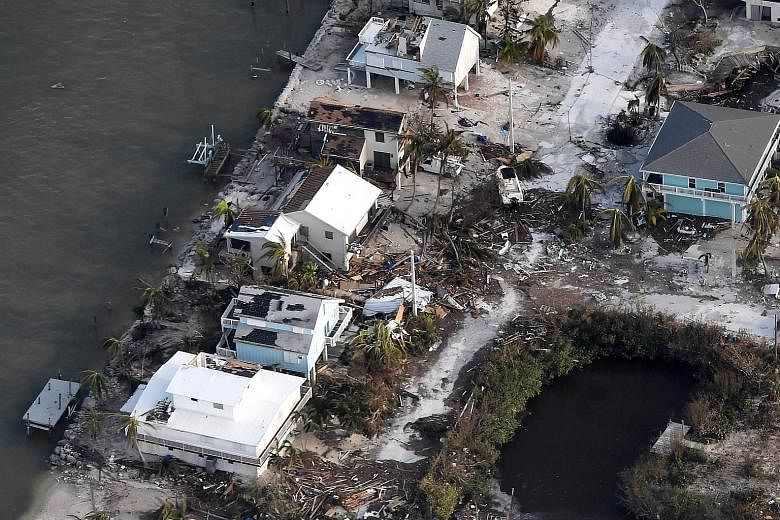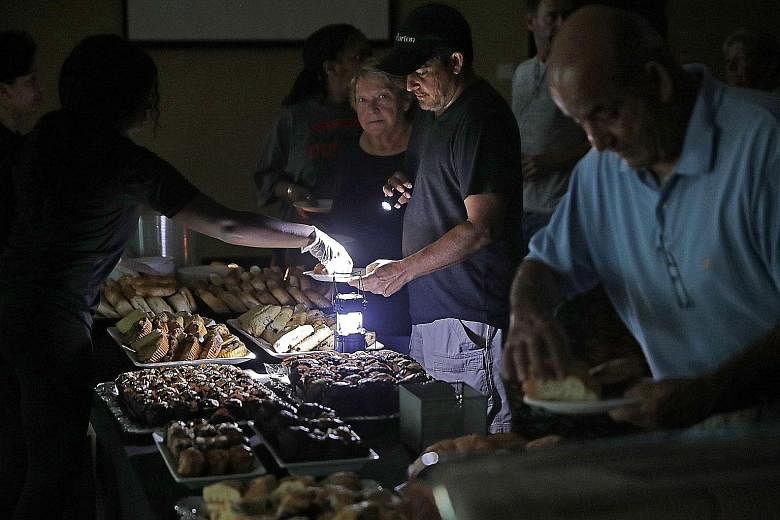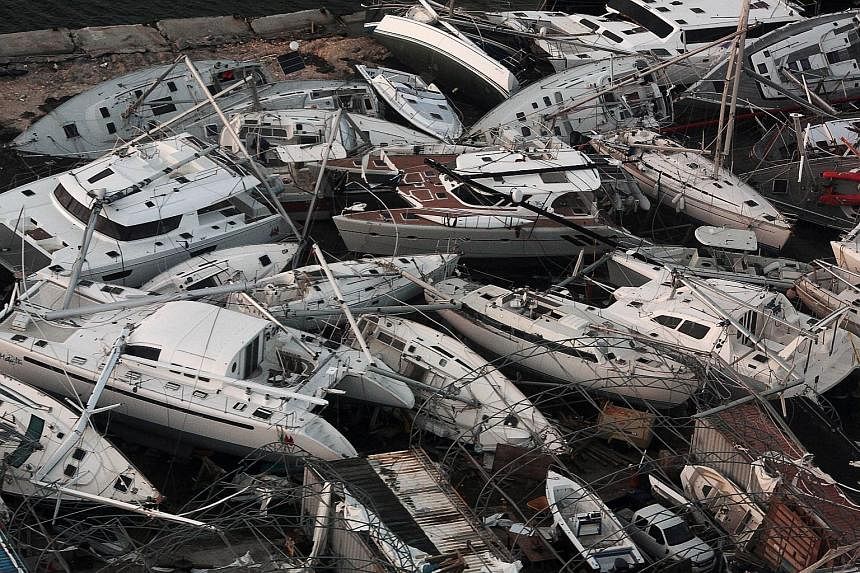IMMOKALEE (Florida) • Hands folded and brown eyes hollow, Mario Valentine sat on his faux-leather couch, staring at the cracked white panels and shredded pink insulation that, before the storm, had been the front wall of his mobile home. Above his head, where the roof used to be, was a row of wooden ribs, stripped bare. Beyond those was nothing but grey sky. Sitting next to the farm worker, was Mr Valentine's five-year-old daughter, Maria. She, too, looked ahead, silent.
All around Immokalee - an inland south-west Florida town of 24,000, where nearly half the residents live in poverty - was evidence of Hurricane Irma's power. Uprooted trees had blocked streets and smashed car windshields. Roofs were ripped off. One mobile home looked like a soda can that had been crushed under a boot heel.
"I saw (hurricanes) Wilma, Andrew and Charley," said Mr Jackson Pierre, who lives nearby and has been a town resident for more than 15 years. "This was worse."
Florida began allowing some residents to return to homes hammered by the storm yesterday, but officials have warned that it would take a long time to repair the damage wrought by high winds and pounding surf, particularly in the resort archipelago of the Keys, which extends into the Gulf of Mexico from the tip of Florida's peninsula and is connected to the mainland by a single, narrow highway.
"There's devastation," Governor Rick Scott told a news conference on Monday, adding that virtually every mobile-home park on the island chain was left upended. "It's horrible what we saw."
Irma, which rampaged through the Caribbean as one of the most powerful Atlantic hurricanes on record, was downgraded to a tropical depression on Monday. The National Hurricane Centre expected the storm to dissipate late yesterday. At its peak, Irma prompted the evacuation of 6.5 million people, the largest evacuation in modern US history. The local authorities told around 90,000 residents of Miami Beach and from some parts of the Florida Keys they could go home, but warned it may be prudent not to remain there.
-
10
Number of deaths linked to the storm in the US - six in Florida, three in Georgia and one in South Carolina.
US$50b
Estimated cost of rebuilding.
7.4m
Number of homes and businesses without electricity in Florida and neighbouring states.
"Don't think just because this has passed you can run home," Mr Scott said. "We have downed power lines all across the state. We have roads that are impassable. We have debris all over the state."
Most of the Sunshine State appeared, however, to have dodged forecasts of catastrophic damage despite dire early warnings. By one estimate, the total cost dropped to about US$50 billion (S$67 billion) from US$200 billion over the weekend. The state escaped the worst because Irma's powerful eye shifted westward, away from the biggest population centre of sprawling Miami-Dade County.
One of the biggest lingering problems was widespread power outages, with utilities reporting some 7.4 million homes and businesses without electricity in Florida and neighbouring states. They said it could take weeks to fully restore service. Mr Scott said 65 per cent of Florida was without power. Travel into and out of the state likewise remained stymied although several major airports began limited service yesterday, including Miami International.
The scope of damage in Florida and its neighbouring states paled in comparison with the destruction left by Irma in parts of the Caribbean, where it devastated several islands and killed nearly 40 people. Irma has been linked to 10 deaths in the United States.
Irma was the second major hurricane to make landfall in the US in a little more than two weeks when it roared ashore on Key Cudjoe as a powerful Category 4 storm on Sunday. It followed Hurricane Harvey, which ploughed into Houston late last month, killing about 60 and causing some US$180 billion in damage, largely through flooding.
The National Hurricane Centre is monitoring another hurricane, Jose, which is spinning in the Caribbean, currently about 1,130km from the mainland.
AGENCE FRANCE-PRESS, REUTERS, WASHINGTON POST



